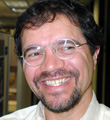6 March 2013
Panelists
 Peter Lilienthal, President/CEO, HOMER Energy
Peter Lilienthal, President/CEO, HOMER Energy
Presentation
Dr. Peter Lilienthal is the President/CEO of HOMER Energy. Since 1993, he has been the developer of the National Renewable Energy Laboratory’s HOMER hybrid power optimization software, which has been used by over 85,000 energy practitioners in 193 countries. NREL has licensed HOMER Energy to be their sole worldwide commercialization licensee for distributing and enhancing the HOMER model. Dr. Lilienthal was the Senior Economist with the International Programs Office at NREL from 1990 - 2007. He has a Ph.D. in Management Science and Engineering from Stanford University. He has been active in the field of renewable energy and energy efficiency since 1978. This has included designing and teaching courses at the university level, project development of independent power projects, and consulting to industry and regulators. His technical expertise is in utility modeling and the economic and financial analysis of renewable and micro-grid projects. He was the lead analyst and one of the creators of NREL’s International and Village Power Programs.
 Richenda Van Leeuwen, Executive Director, Energy and Climate, Energy Access Initiative team, UN Foundation
Richenda Van Leeuwen, Executive Director, Energy and Climate, Energy Access Initiative team, UN Foundation
Richenda Van Leeuwen is Executive Director, Energy Access Initiative overseeing the UN Foundation's work on energy access and its engagement with the UN’s Sustainable Energy for All Initiative. She founded and leads UNF’s Energy Access Practitioner Network, a 900-strong global network catalyzing market-led solutions for energy access in developing countries. She joined the UN Foundation in 2010 from Good Energies, a global renewable energy private equity firm where she led its work both on commercial emerging markets transactions and as a founding board member of the Good Energies Foundation, on the application of renewable energy technologies for poverty alleviation in developing countries. Prior to this, she served as the Executive Director of Trickle Up, an international microenterprise development non-profit organization from 2001-2005. A sought-out speaker on energy access, gender equity and poverty issues, she has over 20 years of executive management experience with the UN, private sector and non-profits on several continents, in particular focusing on impact investing for micro- and small and medium sized enterprises as well as post-conflict reconstruction, refugee issues and economic empowerment. She currently serves on the board of SELCO India, a leading renewable energy social enterprise focusing on energy solutions for poor families in India. She gained both her BS and MBA degrees from Durham University, UK.
